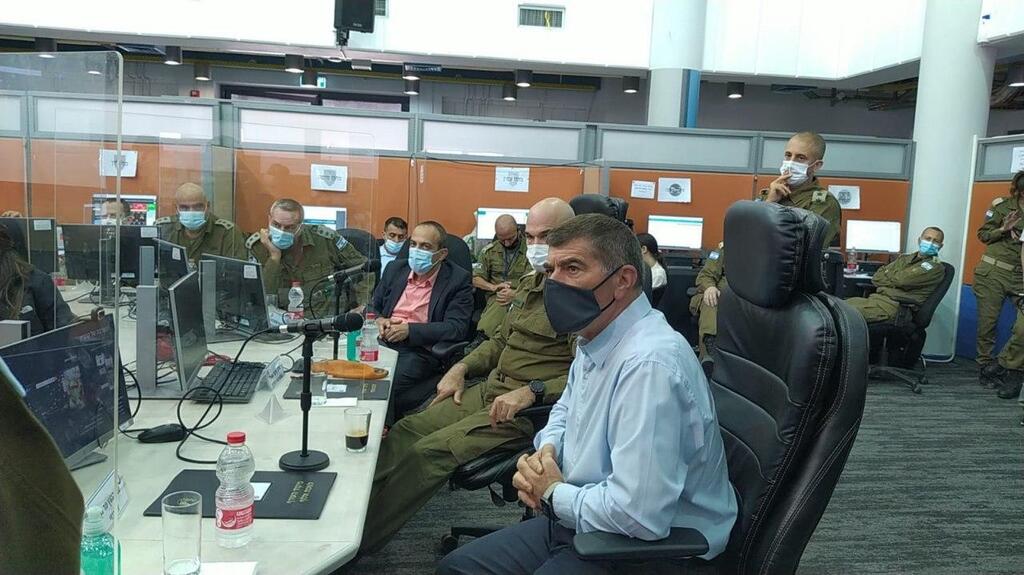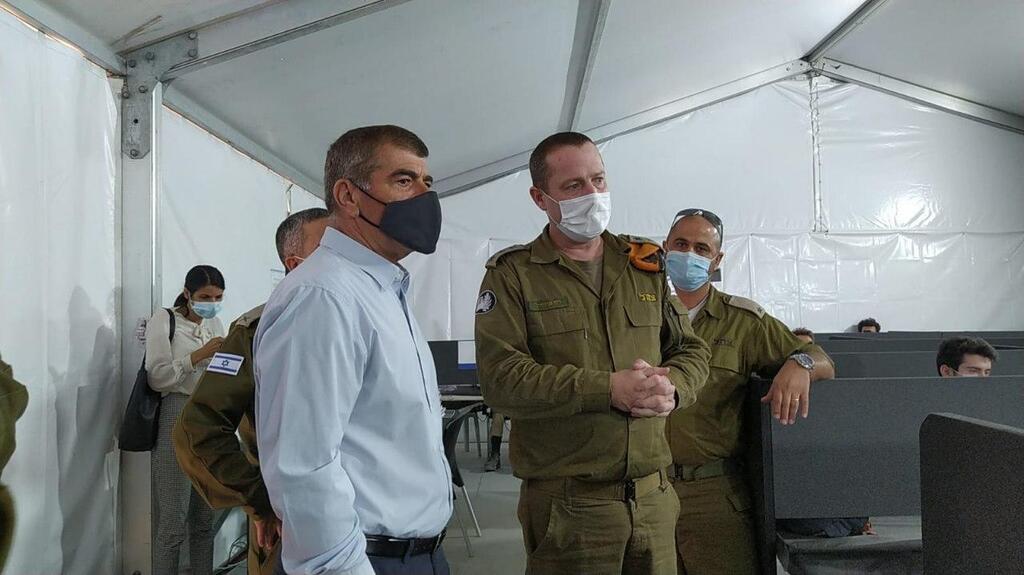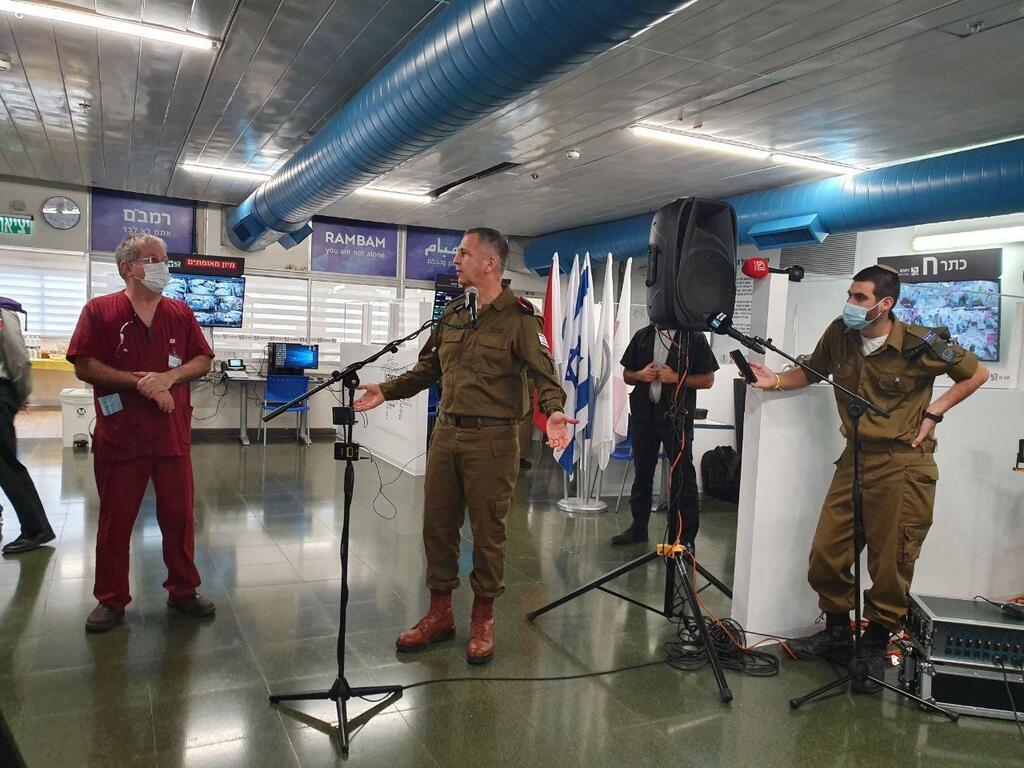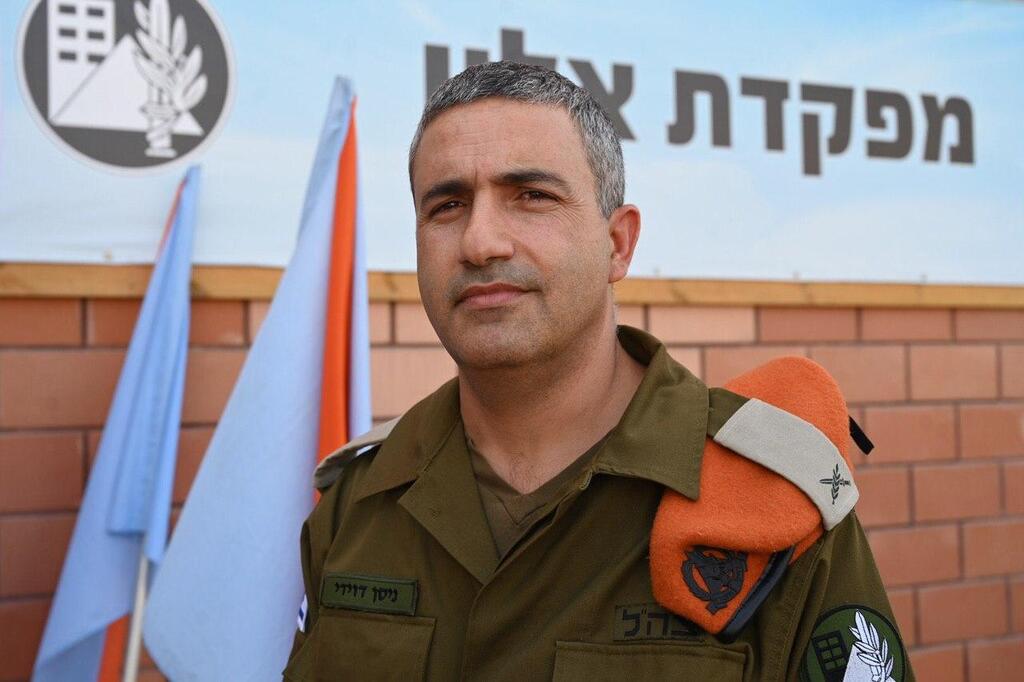By the end of next week Israel will have 2,800 investigators working to break chains of coronavirus contagion across the country and by the end of next month the country will be carrying out 100,000 tests per day, says Brig. Gen. Nissan Davidi, the head of the IDF Home Front Command coronavirus task force.
The Alon task force was set up in August at the Home Front Command base in Ramle. At the time of its creation, Israel was conducting less than 30,000 tests per day and had just 700 epidemiological researchers.
The major problem facing investigators trying to break the chains of contagion is Israelis' reluctance to be completely honest about their movements and with whom they have been in contact.
According to studies conducted abroad, a verified carrier comes into contact with an average of 18 people. But even during Israel's first wave of the virus, when confidence in the government's ability to handle the pandemic was still high, those who were questioned about their movements reported coming into contact with an average of just six people.
The IDF has set a target of reaching 10 people for every confirmed carrier of the virus; so far, according to last week's figures, the average is three people and sometimes even 2.8.
4 View gallery


Foreign Minister Gabi Ashkenazi, right, and coronavirus czar Ronni Gamzu, center, visiting the Alon task force headquarters in Ramle last week
This gives rise to the conclusion that the vast majority of confirmed virus carriers in Israel prefer to deceive investigators and withhold the names of the people they encountered and the places they visited.
This is a vote of no confidence on an unprecedented scale.
To make matters worse, almost half of those who require a period of isolation are not doing so. According to the data collected at the Alon HQ, of the more than 210,000 people who were supposed to be in isolation, 95,000 of them managed to avoid it.
The Shin Bet security service has even grimmer data: It found that 90 percent of those tracked down through contact tracing do not enter isolation, and 30-50% percent of appeals against the Shin Bet's call to enter quarantine are accepted.
The data is bad news for anyone hoping that a system would be put in place to effectively sever chains of contagion.
The IDF did what was required of it, but it could not overcome the lack of compliance from the civilian population.
"Without the cooperation of the citizens and without enforcement this will not work," says Brig. Gen. Davidi.
Nonetheless, the IDF managed to set up an impressive system in just over two months.
4 View gallery


Foreign Minister Gabi Ashkenazi visiting the Alon task force headquarters in Ramle last week
At first, the two major logjams were laboratories and tracing. It took a week from locating a confirmed virus carrier to completing the epidemiological investigation and deciding where to refer people reported to have been in contact with the infected person.
Today, it takes 30 hours to complete the same process, which is now all computerized.
From next week, when an investigator enters a confirmed carrier's name, personal details including any spouse and/or children will appear on the screen. And as the patient provides tracers with the names of more people they came into contact with, their details also entered. The entire investigation into potential new carriers can be completed within an hour.
Over the following three hours, the investigator will question the people with whom the verified patient has been in contact. At the end of each investigation, the system will indicate the next quarantine step – either at home or at a hotel designated for infected people.
The second system developed by the IDF manages the investigations. The system provides each investigator with the names of two patients every morning, who are then contacted by phone during the day.
Meanwhile, the IDF and Israel Police are apparently at odds over the order of priorities for enforcing quarantine measures, which is carried out only by the police.
IDF Chief of Staff Aviv Kochavi and the Military Advocate General have banned soldiers from enforcing coronavirus directives in the civilian population.
4 View gallery


IDF Chief of Staff Aviv Kochavi visiting Rambam Healthcare Campus in Haifa
(Photo: Shamir Elbaz)
On Wednesday, Public Security Minister Amir Ohana, who is responsible for the police, and his ministry's director-general visited the Alon headquarters.
Following the visit, Ohana asked the interim police chief, Deputy Commissioner Motti Cohen, and the head of community policing Amnon Alkalay to meet again with the leaders of the Alon task force.
The meeting was scheduled for Thursday at the Alon headquarters in Ramle.


